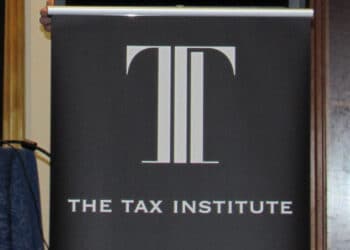In a recent insights update, Hall and Wilcox partner William Moore said that executors could often find themselves also in the shoes of being trustees of an SMSF.
However, during this process, there are various tax considerations for executors to be aware of when dealing with the administration of an estate and avoid an unwanted liability hanging over their heads.
“In instances where a SMSF is involved, it is the trustee of the SMSF and not the executor of the deceased’s will who has the power to deal with a member’s superannuation benefits,” Mr Moore said.
“However, in practice, often the executor and trustee (or director of the trustee company) of the SMSF end up being the same person.”
Mr Moore noted some of the key issues that executors need to be aware of include arranging the transfer of the shareholding in the trustee company in accordance with the terms of the deceased’s will.
“Furthermore, there also needs to be a consideration of making a determination to pay superannuation death benefits in accordance with any binding or non-binding death benefit nominations and considering the most appropriate structure of the payment (where there is a non-binding nomination in place),” Mr Moore explained.
“Arranging for the commutation and payment of any pension accounts, noting that if the deceased had a reversionary pension in place, you will have 12 months from the date of his or her death to complete this, whereas if no reversionary nomination was in place, then the trustee/executor will have a fiduciary duty to make payment of the benefits ‘as soon as reasonably practicable’ (which is generally considered to be six months).
“If the death benefit is paid to a non-dependant or the trustee of a deceased estate, there may be tax to pay, ensuring there are enough funds held over to meet tax liability once the death benefits are distributed.”
There are also a number of other instances where executors need to be aware of taxation in respect of administering an estate, according to Hall & Wilcox senior associate Sam Baring.
Depending on the overall composition of the estate assets, these may include arranging the final tax return for the deceased, and if required, a trust tax return for the estate.
“Executors must consider the tax implications for different beneficiaries of the estate, which may differ depending on various factors, including the type of asset they are receiving (such as cash, superannuation benefits or in-specie property transfers), or if they have unusual tax profiles due to a legal disability or a foreign residency (CGT Event K3),” Mr Baring said.
“In respect of real property that forms part of the estate, any opportunities to minimise the amount of tax payable through the application for duty exemptions with the State Revenue Office (such as an exemption from duty for an in-specie transfer to a beneficiary of the Will under Duties Act 2000 (Vic)) or reduce, defer or disregard a capital gain or capital loss through a CGT rollover with the ATO.”
“An executor that is well organised and aware of the many administration issues they face, and various exemptions available to them when administering an estate, is able to limit the amount of tax payable and provide the maximum benefit to those beneficiaries of the estate after the death of a loved one.”


